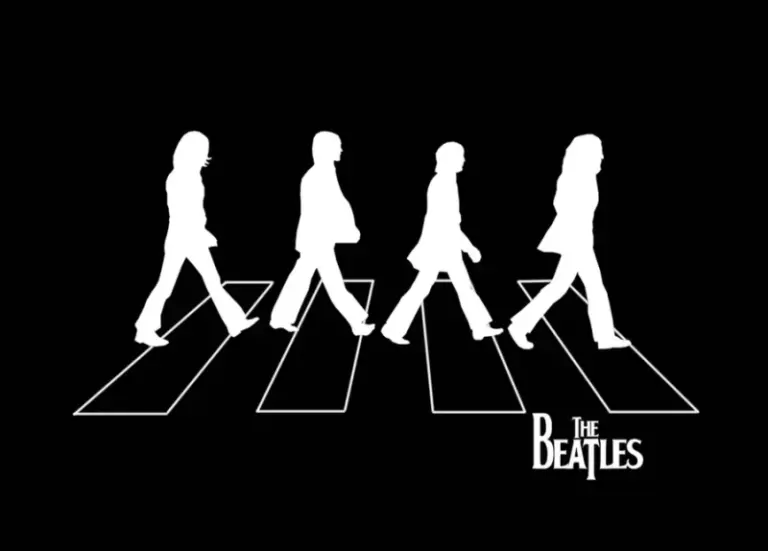The Haunting Genius of Pearl Jams Black| June 01, 2024
Ten by Pearl Jam is the most commercially successful album the band has ever enjoyed. At least three songs on the album have a somber connection to the past. “Even Flow,” a song about a homeless man, was written after Eddie Vedder found out that a homeless Vietnam veteran and friend of the writer died. “Jeremy” was written concerning the real-life events surrounding the tragic end of Jeremy Wade Delle, a 15-year-old who took his own life in front of his second-period English teacher and peers.
The most enigmatic of these songs is “Black.” Little is known about the story behind the music. Despite this, “Black” remains one of Pearl Jam’s most popular songs. There is a haunting presence that stirs up the deepest emotions of the listener. A genius in the song reaches to the deepest parts of the soul and refuses to let go. How is Pearl Jam able to accomplish this act?
Black’s Deep, Personal Meaning
Despite the popularity of Ten and Black, Pearl Jam never wanted the song to be a single. “Alive,” “Even Flow,” and “Jeremy” were all successful singles for the band, and Sony demanded that “Black” be the next single. Eddie Vedder and the band refused to make a video or do promotional work. Instead, “Oceans,” a song about Vedder’s enjoyment of surfing, was the final single for Ten. If “Black” was such a popular song, why would the band refuse to capitalize on its success? The song was very personal, and the emotional gravity of “Black” would be destroyed by a music video.
Vedder would call radio companies asking that “Black” not be played on the air. He would politely ask those he heard singing the song in random places not to do so. This song was not made to seek commercial fame or public appeal. It was an attempt to air out the grief from the past. Little did Pearl Jam know the song connected to listeners on many levels.
Eddie Vedder has stated that Pearl Jam’s songs are about the members emotionally expressing themselves. “Black” is a song filled with Vedder’s emotions. In the documentary Pearl Jam, Twenty Vedder stated that the song was about first loves. This is the type of love that becomes unrequited and a love of which one cannot let go. Some believe the song was written about Beth Liebing or Stefanie Sargent. Regardless, this song holds a deep, personal meaning to him.
Black’s Lyrical Meaning
The personal nature of the song would mean little if it were not for the lyrics. Each line echoes a depressing, hopeless tone. The first verse accurately describes one’s feelings left in the wake of the lack of another’s presence. Life is as if it were an empty canvas and untouched clay. Meaningless. Even the air becomes more difficult to breathe as everything feels stale. The pictures or memories we have are now washed in black. They are a grim reminder of what one once had but inevitably lost.
Vedder described how difficult life can be to enjoy in the wake of loss. Simple walks are wrought with bouts of displeasure. Others are going through life’s simple pleasures. But not the one in the song. That one is too busy replaying memories and negative thoughts and asking the same question. People around me are happy. The one I love will be happy with someone else. Myopically and bitterly, one asks, “Why can I not have my happiness? Why can’t it be with my love?”
Some songs give glimpses of hope scattered amongst the black clouds. Not “Black.” This song is about the pain that comes with loss. There is no light at the end of the tunnel. The title of the song is an accurate description of the rest of the song.
Black’s Haunting Vocals
Vedder does something in “Black” missing from much of today’s popular music: he expresses emotion. Today’s music’s main concern is hitting the proper notes or getting as close to the note as possible and allowing autotune to take care of the rest. This leaves many songs feeling somewhat empty.
The vocals of “Black” exude moroseness. While Vedder hits all the appropriate notes, his sullen voice is the driving factor that ties the lyrics and meaning together. As the song progresses, Vedder’s growl shows the frustration one feels before the depression looms overhead again. Toward the end of the song, the frustration in his voice reaches its zenith. Mike McReady’s guitar’s distortion is ramped up with tremolo playing the same sharp notes. The final lines are sung with a bitter fury, evoking just as much anger as sadness.
A 2014 study found facial expressions helped a singer form an emotional bond with an audience and helped the audience more accurately interpret the performance. A 2013 study found that vocals in music cause a strong emotional arousal in the listener. “Black” can touch the most vulnerable parts to evoke such a response.
Listening to Vedder’s vocal lamentations, the connection happens naturally. But it’s not just the listener pulled into the song. No, the ghosts of the past come to haunt the listener. Plagued by these spirits while the music swells, one confronts the past and asks what might have been.
For More Great Content
If you liked this, check out our Beauty and Fashion content here!
Total Apex is an all-encompassing content producer. We provide heavily detailed articles every day on entertainment, gaming, sports, and so much more! Check out all our great sports content Total Apex Sports. Check us out on X @TotalApexEandG and our other sites: Total Apex Entertainment, Total Apex Gaming, Total Apex Sports Bets, and Total Apex Fantasy Sports.
Brock Lesnar WWE Future Dire for These 3 Sad Reasons
Sony Pictures CEO Praises AI After Huge 2023 Strikes
5 Popular Anime Children Must Not Watch





